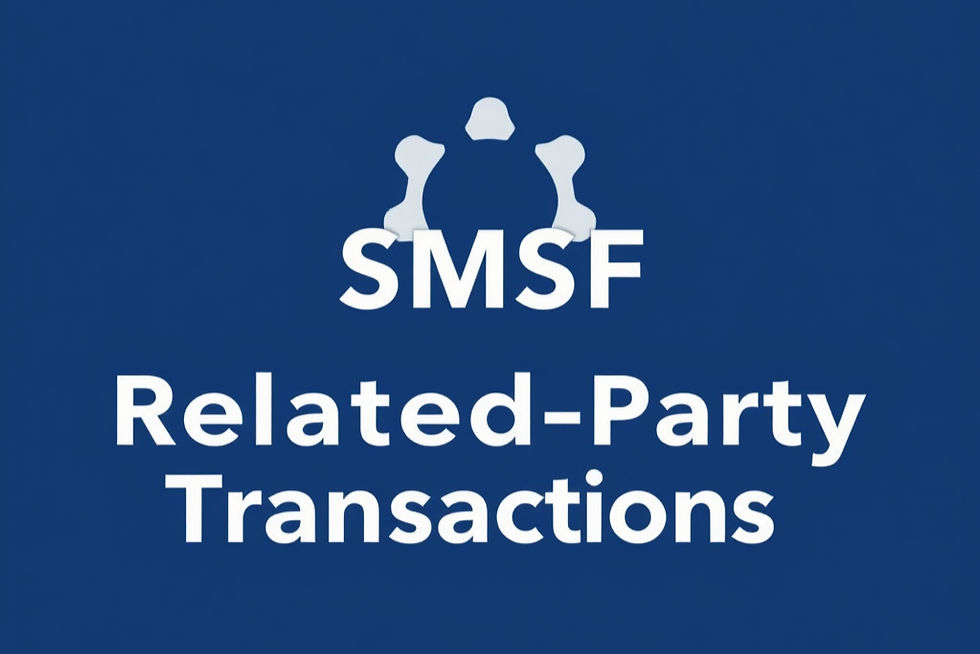Public Country-by-Country Reporting – What’s Changing and Why It Matters
- pdbptax
- Oct 22
- 4 min read
Updated: Nov 6

Australia’s new Public Country-by-Country (CBC) Reporting Regime represents a major step forward in global tax transparency. It extends far beyond the confidential OECD framework introduced in 2016 and reflects the Government’s commitment to integrity, fairness, and accountability in multinational taxation.
Under the earlier regime, large multinational groups reported detailed financial and tax data privately to the Australian Taxation Office (ATO). Those confidential reports helped assess transfer-pricing and tax-risk compliance but remained protected under secrecy provisions.
From 1 July 2024, this changes fundamentally. For the first time, large multinational enterprises (MNEs) with Australian operations will be required to publicly disclose selected financial and tax information. The ATO will publish these reports on a government website, showing revenue, profits, taxes paid and accrued, number of employees, tangible assets, and a statement describing the group’s approach to tax.
This public disclosure is designed to promote trust and consistency in the international tax system. However, it also introduces significant governance, compliance, and reputational challenges. Data accuracy, consistency with financial statements, and readiness for public scrutiny will become essential governance priorities for boards and finance leaders.
At a Glance: Existing vs Additional CBC Reporting Requirements
Aspect | Existing CBC Reporting (Confidential Regime) | Additional Public CBC Reporting (Transparency Regime) |
Legislative Basis | ITAA 1997 Subdiv 815-E (OECD BEPS Action 13, effective 2016). | Treasury Laws Amendment (Making Multinationals Pay Their Fair Share – Integrity and Transparency) Act 2023; TAA 1953 s 3DB; ATO PS LA 2025/D1 (draft). |
Effective Date | From 1 January 2016. | From 1 July 2024 (first reports due 2026). |
Purpose | Confidential reporting to ATO for risk assessment. | Public disclosure to enhance transparency and discourage profit shifting. |
Recipient / Publication | Lodged with ATO only (shared via OECD exchange agreements). | Published publicly on ATO-managed website. |
Who Must Report | Global income ≥ A$1 billion and Australian entity or PE. | Global income ≥ A$1 billion and Australian-sourced turnover ≥ A$10 million. |
Data Reported | CBC report, plus Master and Local Files (confidential, lodged privately with the ATO). | Public CBC report in addition to the existing confidential CBC, Master, and Local Files. Public disclosure includes revenue, profit, income tax paid and accrued, employees, tangible assets, and a statement of the group’s approach to tax. |
Exemptions | None. | Commissioner discretion in exceptional circumstances (e.g. national security, foreign law conflict, commercial sensitivity). |
Penalties | Standard ATO administrative penalties. | Up to 2,500 penalty units (≈ A$825,000) per failure. |
Confidentiality | Protected under tax secrecy laws. | Fully public and searchable on ATO register. |
Strategic Impact | Internal risk-assessment tool for ATO use only. | Public governance issue — reputational and stakeholder scrutiny. |
Key Highlights and Emerging Developments
Recent industry analyses and regulatory updates highlight several key developments that businesses should plan under the new Public CBC regime:
Reporting timeframe: The new regime applies to income years commencing on or after 1 July 2024, with the first reports due by 30 June 2026 for entities with a 30 June year-end. Businesses with different reporting dates should plan accordingly to meet their respective deadlines.
Registration requirement: The ATO encourages entities to register at least four weeks before engagement, allowing sufficient time to nominate authorised contacts, confirm agent representation, and prepare exemption or extension requests.
Specified jurisdictions: Detailed, jurisdiction-by-jurisdiction disclosure is required for those listed in the Taxation Administration (Country-by-Country Reporting – Specified Jurisdictions) Determination 2024 — including Singapore, Switzerland, Hong Kong, and the Cayman Islands — while aggregated reporting is permitted for all other countries.
Parallel compliance: The new Public CBC regime operates alongside the existing confidential CBC obligations under Subdivision 815-E of the ITAA 1997. Entities subject to both frameworks will need to reconcile data definitions and ensure consistency across disclosures.
Exemption guidance: Draft Practice Statement PS LA 2025/D1 explains how the Commissioner will exercise discretion to grant full or partial exemptions — limited strictly to exceptional circumstances, such as national security, conflicts with foreign law, or severe commercial sensitivity.
Public visibility: All published information will be accessible to investors, media, NGOs, and competitors. Groups are advised to prepare contextual narratives or explanatory statements to mitigate the risk of data misinterpretation.
System readiness: As the ATO’s lodgement format and data schema are still being finalised, early data-mapping, internal review, and board-level oversight are essential to ensure accuracy, completeness, and compliance readiness.
Essential Points for Compliance
Scope expansion: The regime captures a wider range of multinational groups — those with global income of A$1 billion or more and Australian-sourced turnover of at least A$10 million. Entities that previously fell outside the confidential CBC framework may now be within scope.
Transparency obligation: For the first time, key tax and financial data will be publicly available, subjecting businesses to heightened stakeholder, investor, and media scrutiny.
Limited exemptions: Exemptions will only be granted in exceptional circumstances — such as national security or conflicts with foreign law — and must be supported by detailed, credible evidence.
Dual reporting duties: The public CBC regime operates in addition to the existing confidential CBC requirements under Subdivision 815-E, meaning affected entities will need to comply with both reporting frameworks.
Governance and accountability: Boards and senior executives should ensure that internal controls, data validation, and the organisation’s “approach to tax” statement are accurate, consistent, and ready for public release.
BPTAX Perspective
At BPTAX, we regard the Public Country-by-Country (CBC) reforms as a defining moment in corporate tax governance. Transparency and accountability are no longer optional — they are now embedded expectations of responsible business conduct.
Beyond the technical reporting obligations, this reform signals a broader shift toward public accountability in tax affairs. Organisations must not only ensure the accuracy of their data but also manage how that information reflects their tax integrity, governance standards, and social licence to operate.



